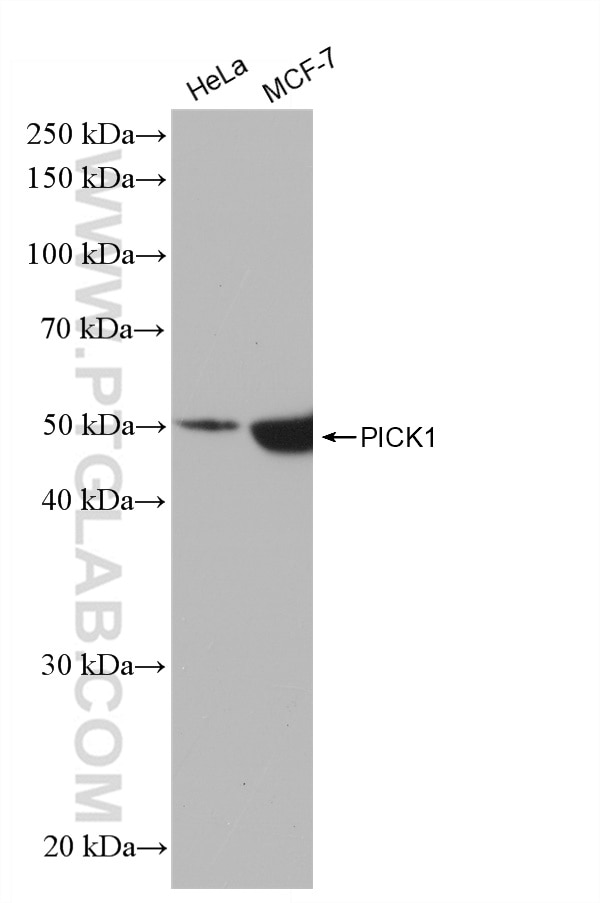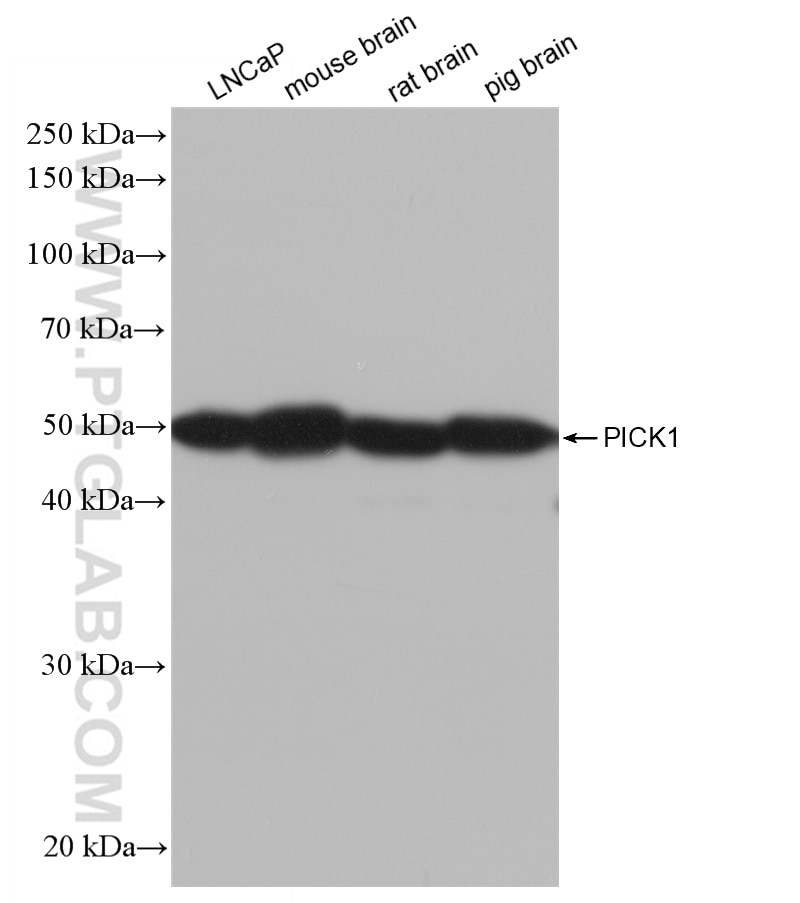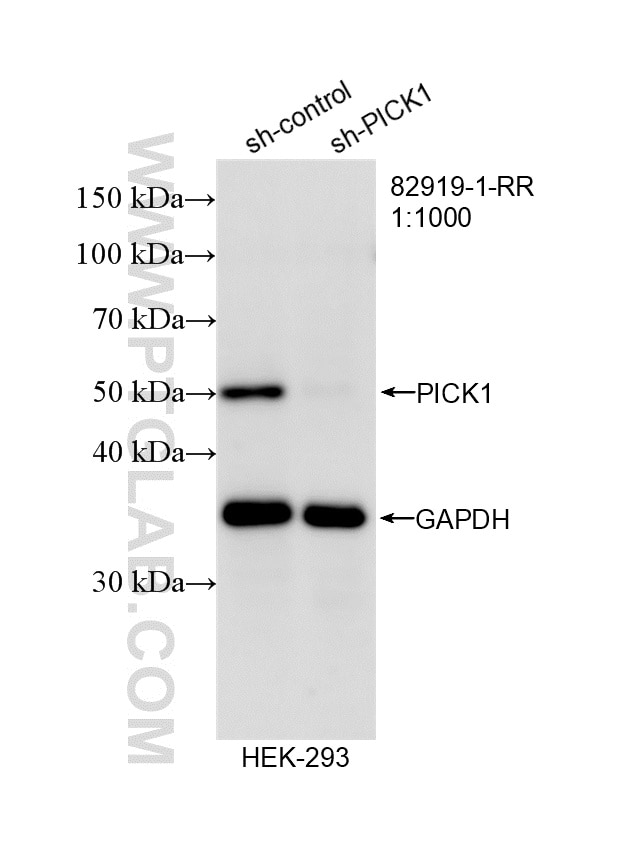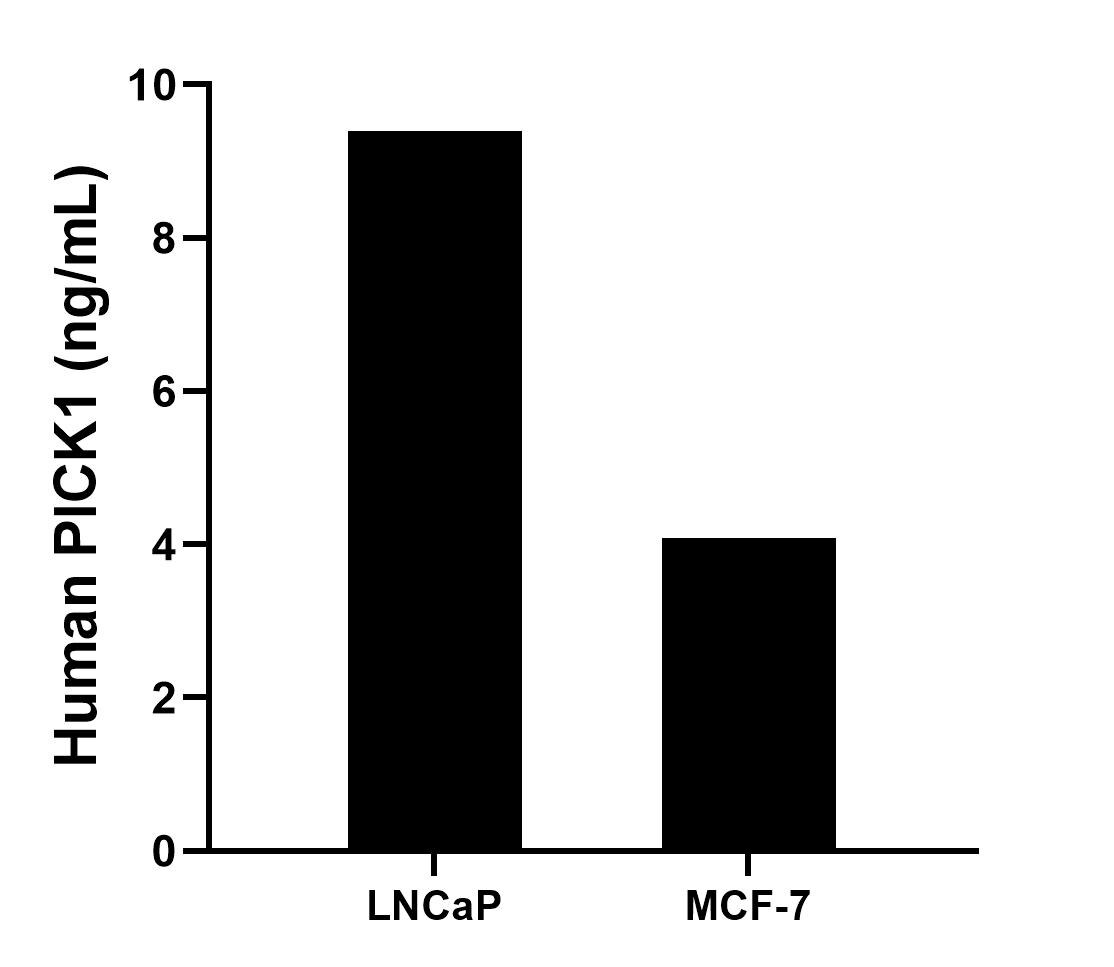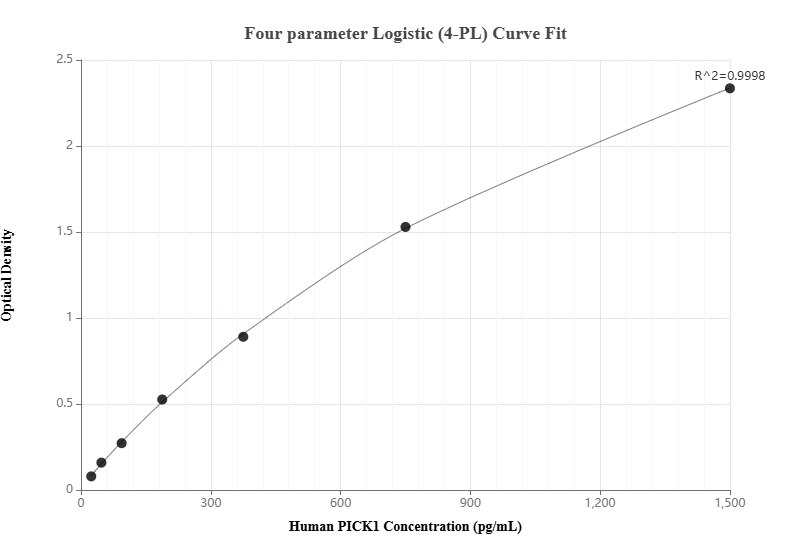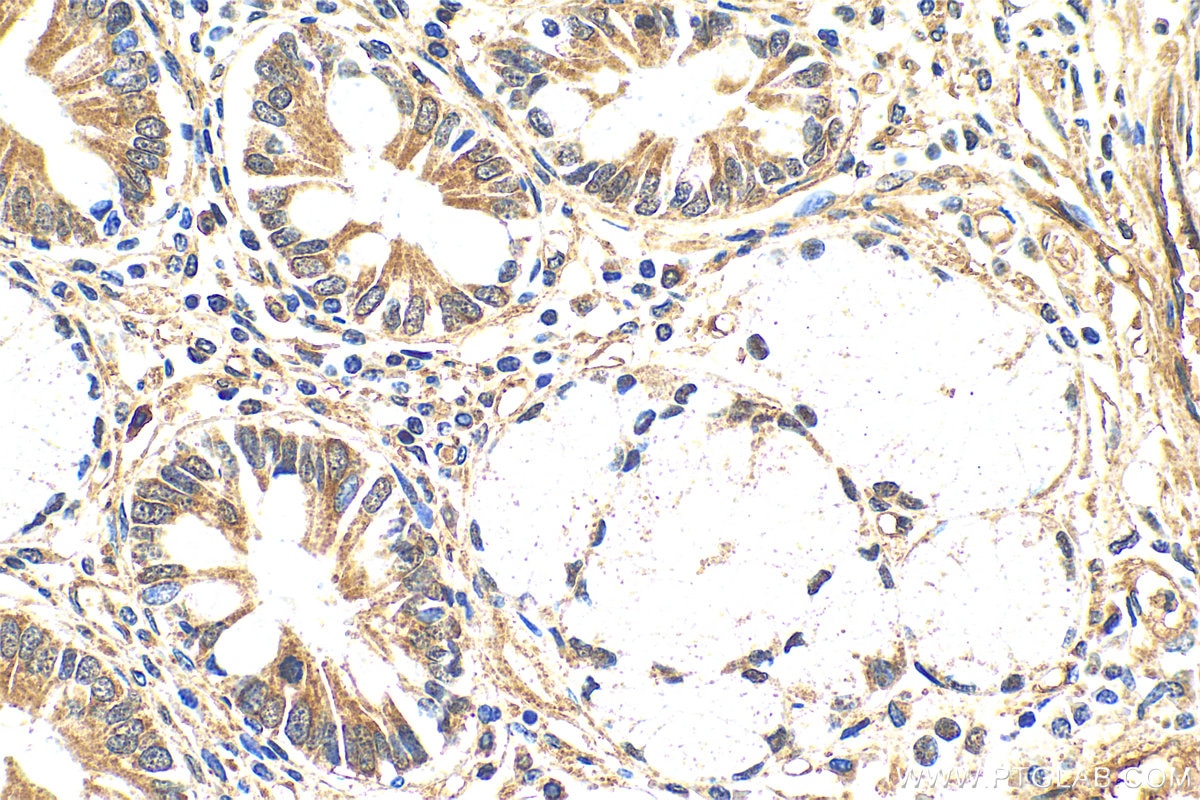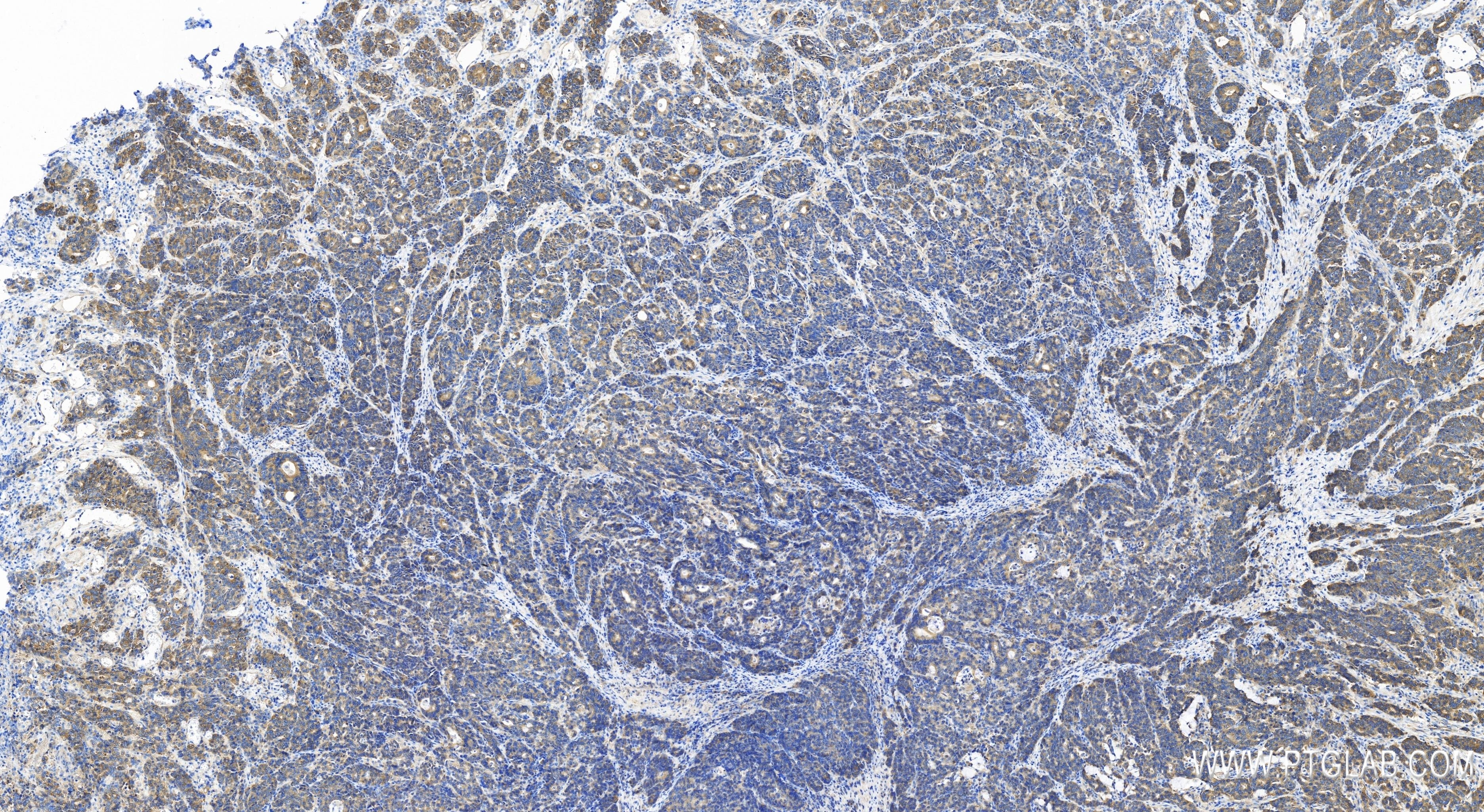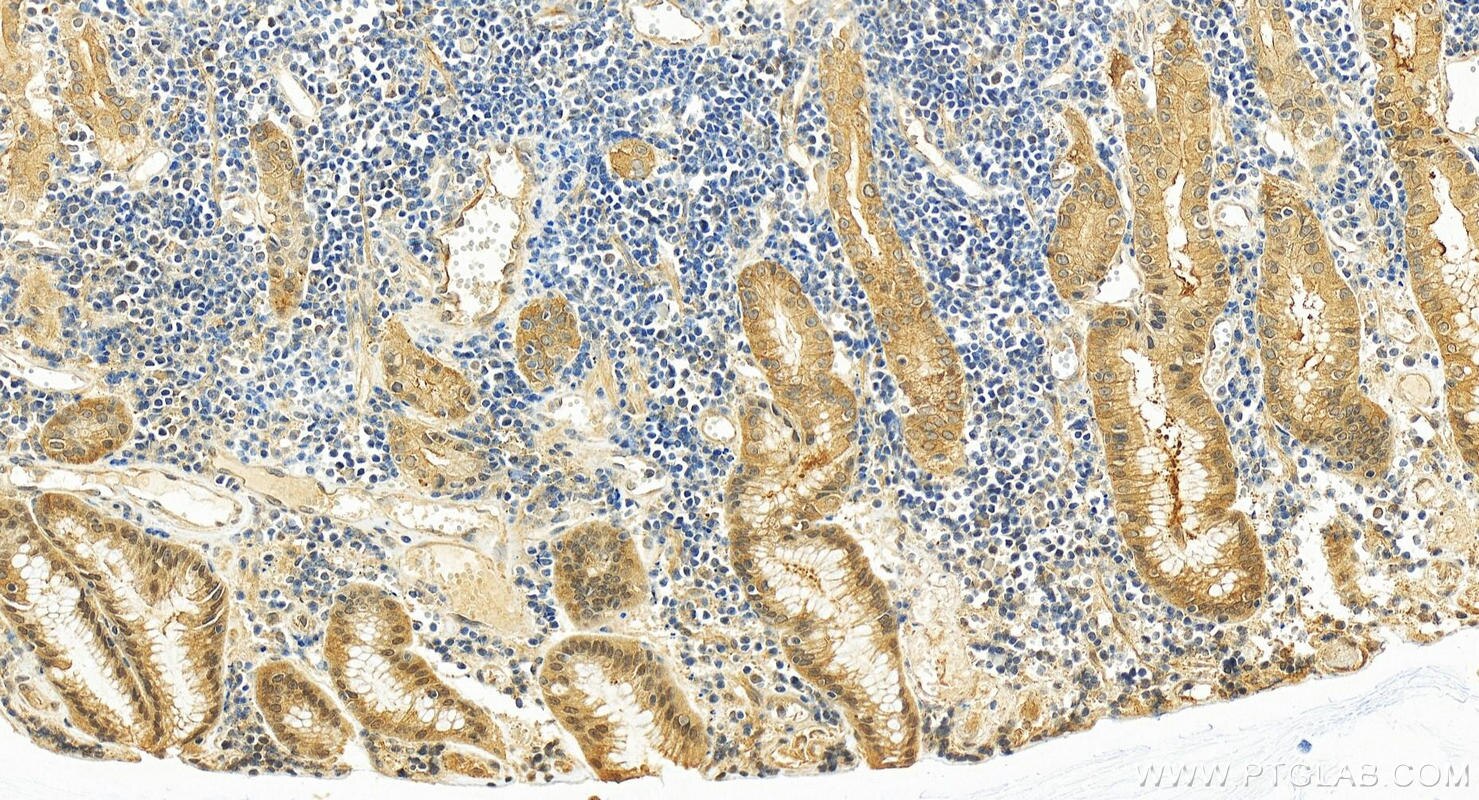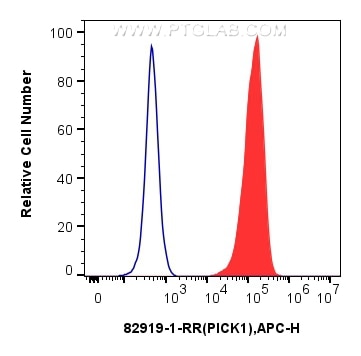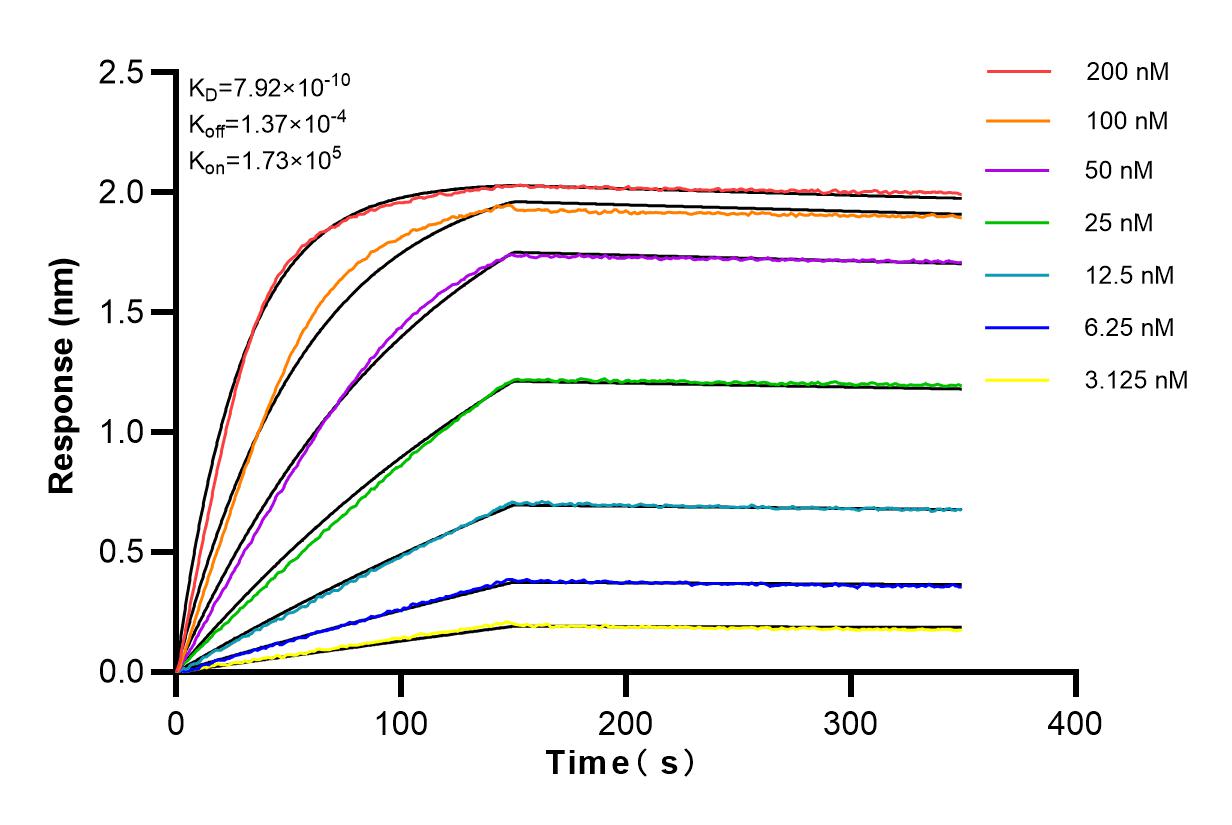Product Information
82919-1-PBS targets PICK1 as part of a matched antibody pair:
MP00068-3: 82919-2-PBS capture and 82919-1-PBS detection (validated in Sandwich ELISA)
Unconjugated rabbit recombinant monoclonal antibody in PBS only (BSA and azide free) storage buffer at a concentration of 1 mg/mL, ready for conjugation. Created using Proteintech’s proprietary in-house recombinant technology. Recombinant production enables unrivalled batch-to-batch consistency, easy scale-up, and future security of supply.
This conjugation ready format makes antibodies ideal for use in many applications including: ELISAs, multiplex assays requiring matched pairs, mass cytometry, and multiplex imaging applications.Antibody use should be optimized by the end user for each application and assay.
| Tested Reactivity | human, mouse, rat, pig |
| Host / Isotype | Rabbit / IgG |
| Class | Recombinant |
| Type | Antibody |
| Immunogen |
CatNo: Ag1443 Product name: Recombinant human PICK1 protein Source: e coli.-derived, PGEX-4T Tag: GST Domain: 1-415 aa of BC017561 Sequence: MFADLDYDIEEDKLGIPTVPGKVTLQKDAQNLIGISIGGGAQYCPCLYIVQVFDNTPAALDGTVAAGDEITGVNGRSIKGKTKVEVAKMIQEVKGEVTIHYNKLQADPKQGMSLDIVLKKVKHRLVENMSSGTADALGLSRAILCNDGLVKRLEELERTAELYKGMTEHTKNLLRAFYELSQTHRAFGDVFSVIGVREPQPAASEAFVKFADAHRSIEKFGIRLLKTIKPMLTDLNTYLNKAIPDTRLTIKKYLDVKFEYLSYCLKVKEMDDEEYSCIALGEPLYRVSTGNYEYRLILRCRQEARARFSQMRKDVLEKMELLDQKHVQDIVFQLQRLVSTMSKYYNDCYAVLRDADVFPIEVDLAHTTLAYGLNQEEFTDGEEEEEEEDTAAGEPSRDTRGAAGPLDKGGSWCDS Predict reactive species |
| Full Name | protein interacting with PRKCA 1 |
| Calculated Molecular Weight | 47 kDa |
| Observed Molecular Weight | 50 kDa |
| GenBank Accession Number | BC017561 |
| Gene Symbol | PICK1 |
| Gene ID (NCBI) | 9463 |
| Conjugate | Unconjugated |
| Form | Liquid |
| Purification Method | Protein A purification |
| UNIPROT ID | Q9NRD5 |
| Storage Buffer | PBS only, pH 7.3. |
| Storage Conditions | Store at -80°C. |
Background Information
Protein interacting with C kinase 1 (PICK1) was first cloned as a PKC-binding partner through yeast two hybrid system. PICK1 acts as a critical regulator of membrane receptors' subcellular trafficking to modulate neural processes such as learning and memory, and is widely expressed in brain, testis, heart, lung, liver, kidney and muscle. It probably binds to and organize the subcellular localization of a variety of membrane proteins containing some PDZ recognition sequence, for instance, PICK1 is a critical mediator of α-amino-3-hydroxy-5-methyl-4-isoxazolepropionic acid receptor (AMPAR) trafficking in neural synapses. PICK1 expression on D-serine release and glutamate transport in astrocytes suggests a potential implication of PICK1 in the progression of amyotrophic lateral sclerosis (ALS). PICK1 may also participate in breast cancer development through inhibition of TGF-β signaling.

